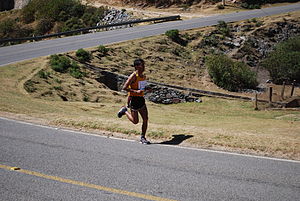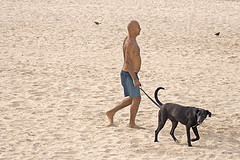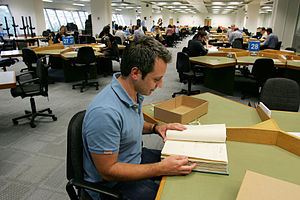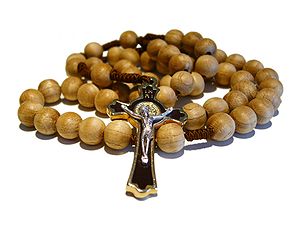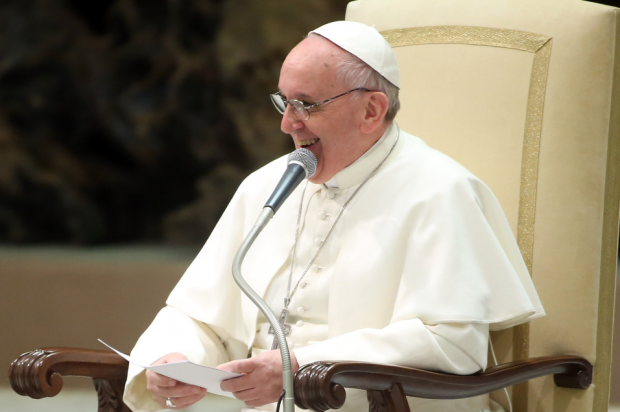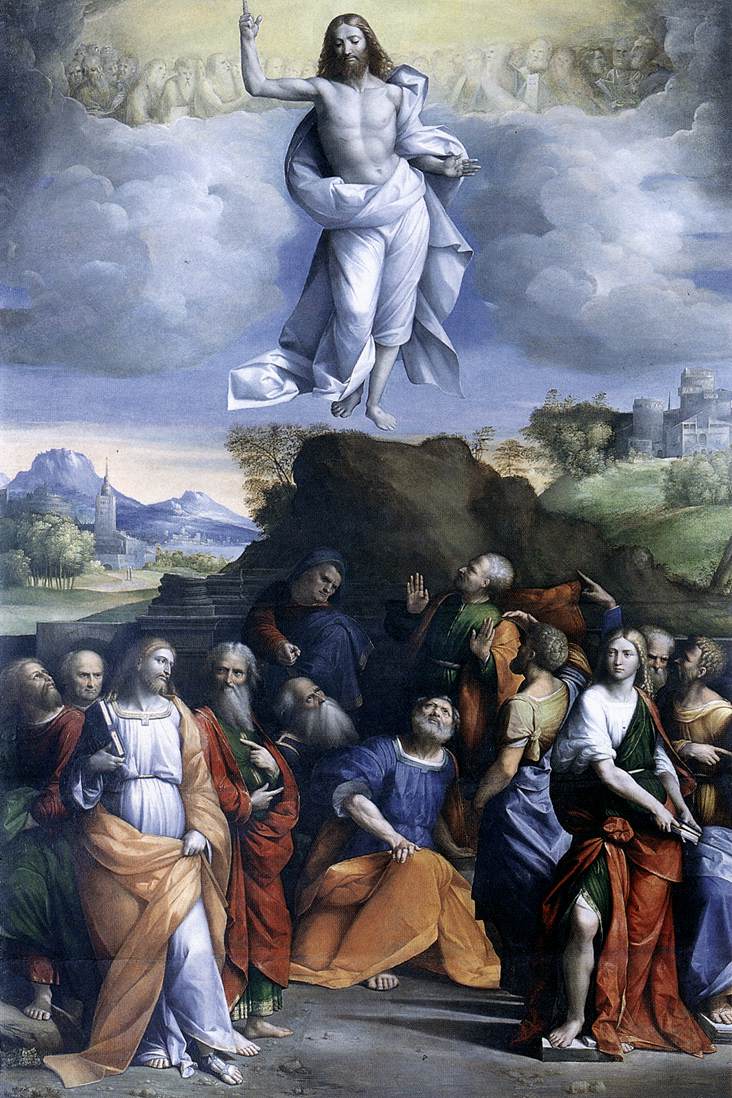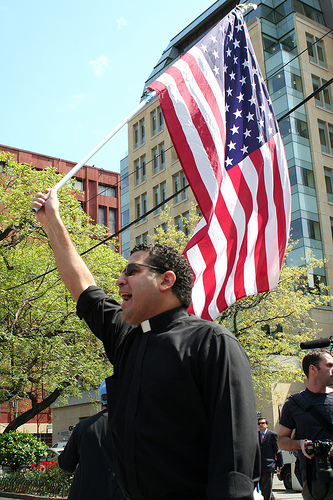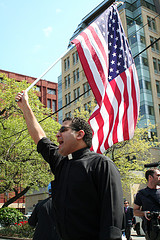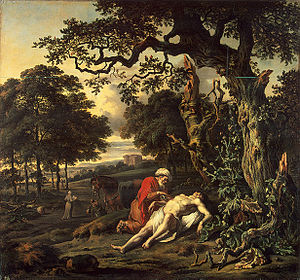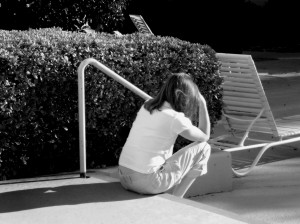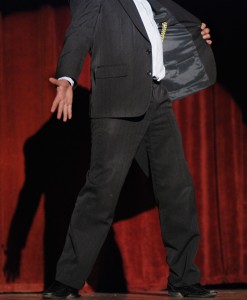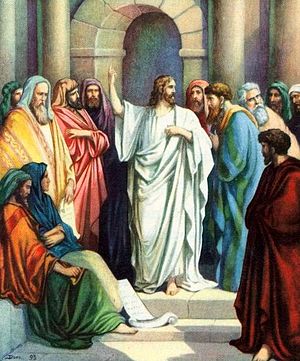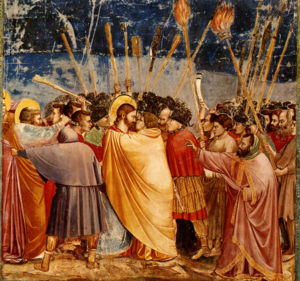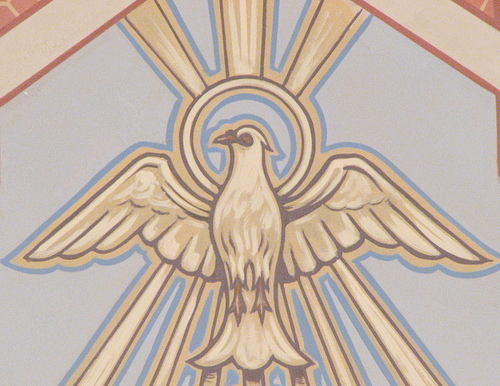Given the frustrating news stories lately, I thought I would lighten things up a bit and give you a break from debt ceilings, shutdowns, healthcare, or some stupid statement a politician just made. In many of my previous posts I compare rosary prayer to exercise. In this post, I thought I would draw some relationships between certain roles people have in the exercise world and their rosary praying counterparts. Read below and ask yourself what type of rosary person are you.
#1: The Sprinter
This person typically prays the rosary without taking a single breath. He often confuses rosary prayer with Nascar racing and thinks the goal is to get through the entire rosary as fast as possible. Or, at the very least, get through a decade before the end of commercial break. He probably isn’t really thinking about the rosary mysteries, but has his mind on the television show or movie that is playing in the background. What’s important to him is that he can check off “rosary” on his daily “todo” list.
#2: The Marathon Runner
This person typically prays all 20 mysteries of the rosary every day. He possesses incredible patience, concentration, and free time. While he tries to pray in a quiet, meditative environment, praying while also doing household chores or driving in the car will do in a pinch. He has incredible confidence in the power of the rosary and prays so many mysteries, not because he thinks God will physically reward him for it, but because it brings him peace and strength to carry out God’s Will.
#3: The Daily Walker
This person tries to fit in 5 mysteries every day. He usually has a routine he likes to follow such as praying the rosary at the same time and in the same place each day. He doesn’t usually fret over skipping his regularly scheduled rosary praying time. If he does miss it, he’ll just resume the next day. The quality of his prayers can fluctuate from day to day. Sometimes he is as focused as a laser beam like the Marathon Runner and other times he races through it like the Sprinter. He knows he should take his time with the rosary like the Marathon Runner and he may start out with a the goal of a high quality rosary workout. But somewhere along the way he gets distracted and just races to the end.
#4: The Gear Junkie
This person thinks of the rosary like a good luck charm or magic incantation. He thinks that by praying the rosary nothing bad, challenging, or inconvenient should happen to him. He often won’t actually pray the rosary, but just hangs it up on the car’s rear view mirror or carries it around with him like a lucky rabbit’s foot. He is like the runner that spends a lot of money on a running suite, shoes, and biometric gear but never actually goes out and runs. Or he runs halfheartedly. The gear junkie prayer person, much like his running counterpart, thinks of the rosary as an item, not a tool. And when he doesn’t get the results he expects, he quickly gives up and finds something else he thinks will solve all his problems. And, like the P90X workout DVDs, the rosary will just sit in a drawer and collect dust.
#5: The Researcher
In exercise, the researcher wants to learn everything he can about an exercise or eating routine before getting started. He will spend his nights reading all he can about a no-carb diet while scarfing down a muffin and energy drink because he tells himself the new diet starts “tomorrow.” Or he won’t do a single pushup until he buys that gym membership and signs up for a class. The rosary researcher won’t pray a single bead until he finishes reading his book on the importance of the rosary or has all his questions answered about the rosary on the Catholic Answers forums. Or he won’t get started praying until the house is clean, the car is washed, the grass is mowed, and the bills are paid. He is always finding a reason to delay rosary prayer until he feels “ready” for it.
#6: The Cross Fit
Not just content with running five miles, he will stop and do twenty pushups every two minutes. The cross fit exerciser really pushes himself to the limit and is always finding ways to combine different exercises into a single workout. The cross fit rosary prayer also pushes himself by not only praying the rosary, but also reading scriptural passages and offering specific intentions. He won’t just rattle off the words of each prayer, but really concentrates on meditating on each mystery. He likes to compete with the marathon rosary person for who has the most rosary meditation endurance.
The truth is, there is a little bit of each of these rosary people in all of us. Sometimes we’re the Sprinter, sometimes the Daily Walker, and sometimes (if we’re lucky), the Cross Fit or Marathon rosary praying person. But regardless of how well you pray on any given day, don’t give it up! Just keep trying to be a little better at it. God will appreciate the effort.
Related articles
- Why the Rosary? (rosarymeds.com)
- Our Lady of the Rosary (thiscatholicgeneration.wordpress.com)
- The Joy of Heaven Begins in the Rosary (opeast.org)
- How to pray the Rosary. (thecatholicsnetwork.com)
- How to pray the Rosary (thecatholicdormitory.wordpress.com)
- Praying The Rosary (rosarydoctor.wordpress.com)


